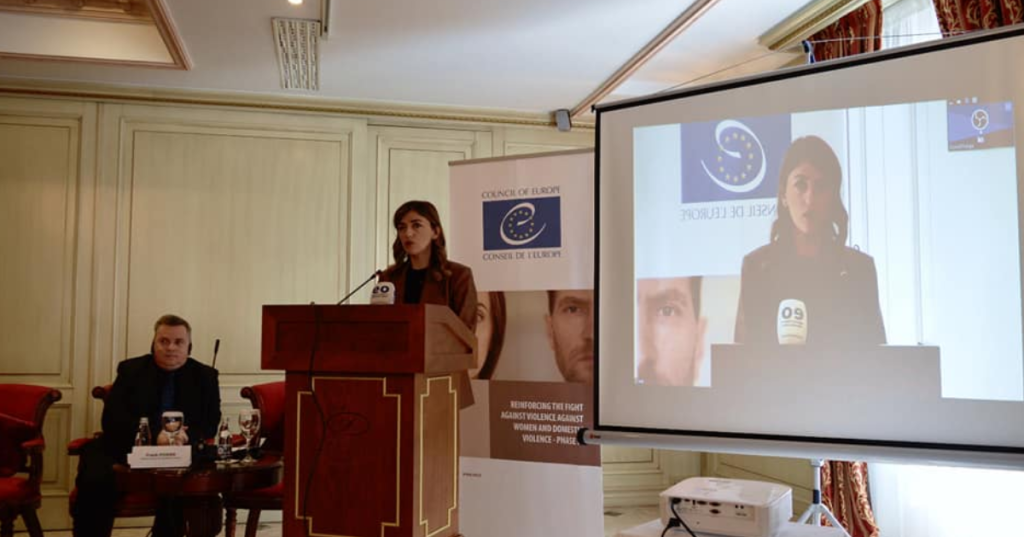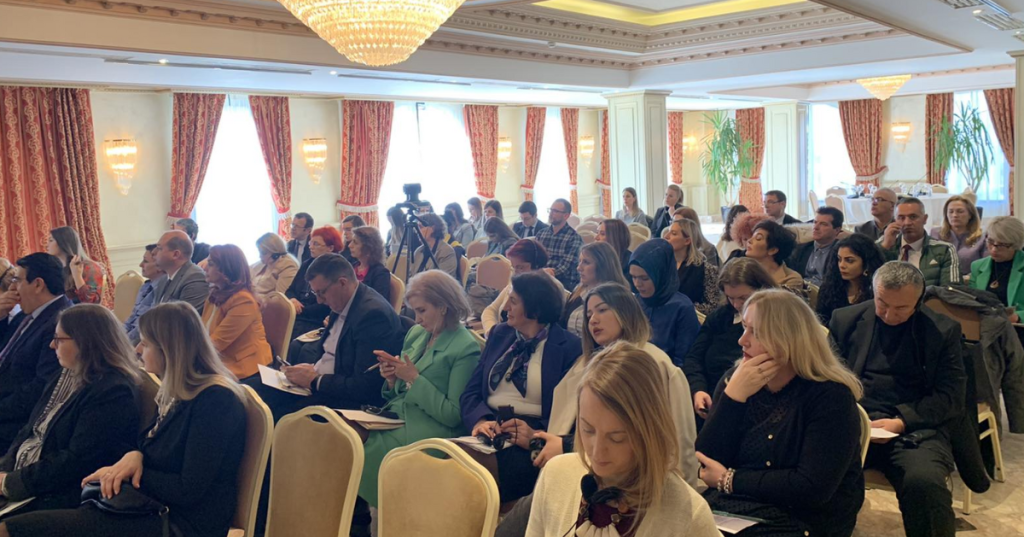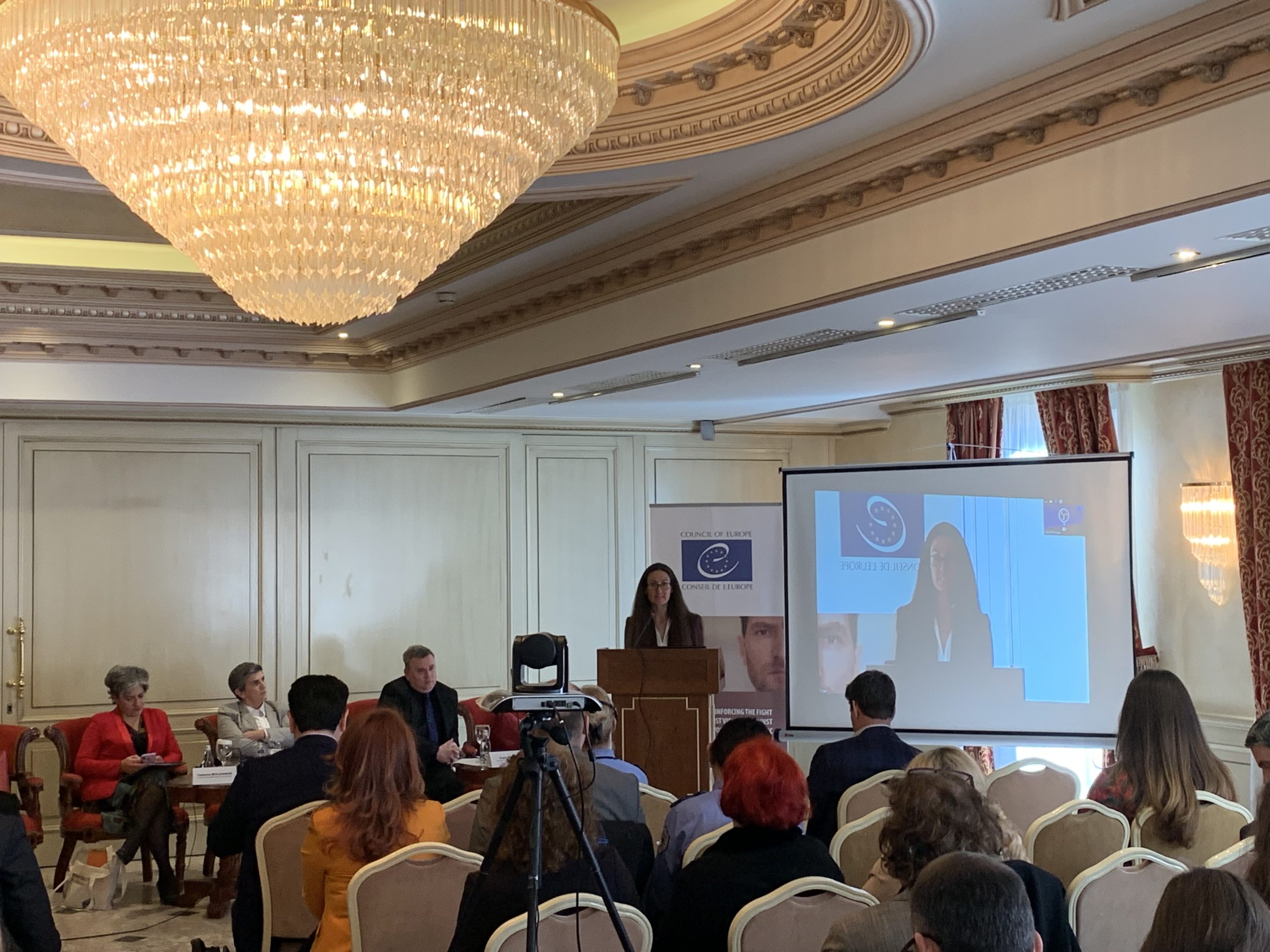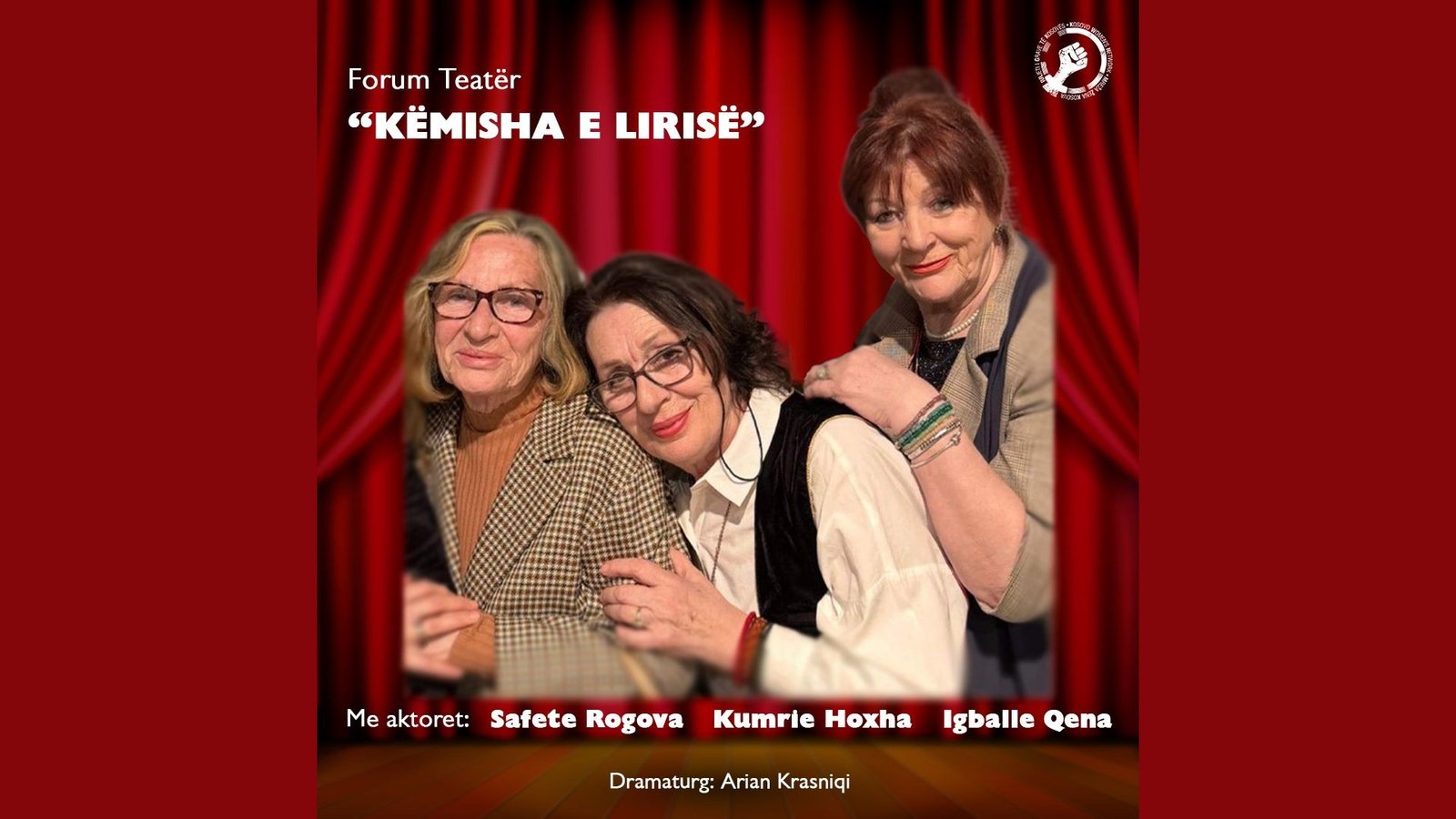On February 16th, representatives from local, international, and civil society institutions discussed about the prevention of domestic violence at a conference called ” Breaking the cycle of violence – programmes for perpetrators of domestic violence” organized by the Council of Europe in Pristina.
The Kosovo Women’s Network (KWN) has offered concrete recommendations for the entire ongoing process. The Minister of Justice, Albulena Haxhiu, said that violence in the family and against women is alarming and must be handled urgently. The influence of social factors and norms mainly contribute to the inequality women face in all spheres of life.
“We are witnessing that violence also ends in fatality. Support requires a multi-sectoral approach and cooperation that empowers victims to not tolerate any kind of violence. The one-year report for 2022 has identified the successful interventions as well as those that are lacking,” said Haxhiu.

Frank Power, Head of the Office of the Council of Europe in Pristina, has said that Civil Society Organizations for women’s rights have played a crucial role in combating violence against women and they have kept our feet on the ground to ensure that our interventions target the right audience.
Meanwhile, Nicole Farnsworth, Program Director and Research Leader at KWN, said that since 2008, KWN has emphasized the need to transform gender norms, address gender power relations, and ensure an improved institutional response in the treatment of abusers towards violence prevention. Farnsworth added that programs related to the rehabilitation of perpetrators should also be reflected in the Law on Protection from Gender-Based Violence, which should be finalized as soon as possible.
She added that legal accountability should be made clear for the institutions that are responsible for rehabilitation, including the provision of services, coordination of work, exchange of information, and independent monitoring of offenders over the long term.
“Based on experience and research, the best way to prevent violence is to transform socialized gender roles, norms, structures and relationships that place women and girls in an unequal position, whether it is here in Kosovo or around the world. ,” Farnsworth said.

Other recommendations for the Government of Kosovo from KWN are:
- To continue working closely with CSOs in finalizing programs for perpetrators of violence in Kosovo, relying on their expertise;
- To ensure that every program for perpetrators of violence has a comprehensive community-based approach;
- Clarify the institutions responsibilities to assist victims and monitor perpetrators from reoffending, especially as the legal framework is being finalized
- Ensure adequate training for all offender program facilitators and judges;
- Ensure that financial resources are not removed from rehabilitation programs that work for people who have suffered violence, as these programs should be prioritized and funded by the state first;
- Continue efforts to transform traditional gender norms and power relations that contribute to gender-based violence through education.
Caterina Bolognese, Head of the Division for Gender Equality from the Council of Europe, announced that policies have been developed according to the six-year strategy to stop domestic violence and violence against women.
“We have focused on boys and men. We have adopted a set of guidelines for men and boys fighting violence against women,” she said.
After the approval of the curriculum, the drafting of the program for treatment of perpetrators will be continued, in order to work towards the prevention of gender-based violence. KWN is expected to be part of the working group that will design this program, ensuring the recommendations and perspectives of civil society women’s organizations will be integrated.




